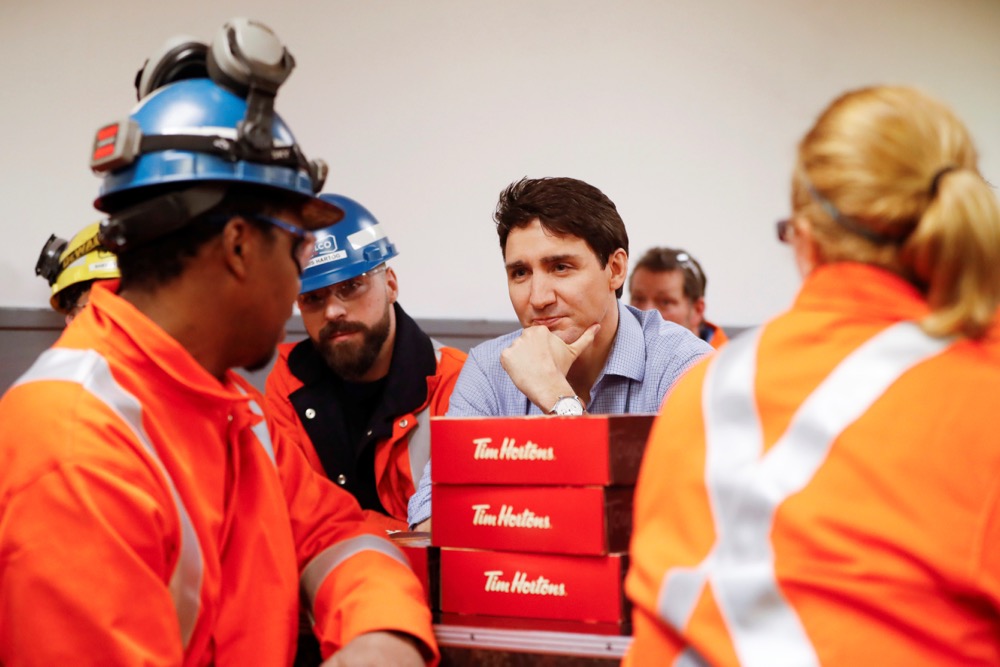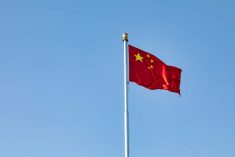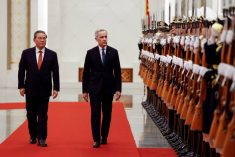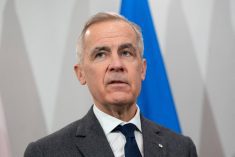Washington/Ottawa | Reuters — The United States struck deals on Friday to lift tariffs on steel and aluminum imports from Canada and Mexico, the three governments said, removing a major obstacle to legislative approval of a new North American trade pact.
The separate agreements, which will not impose U.S. quotas on Canadian and Mexican metals shipments, will also eliminate Mexican and Canadian retaliatory tariffs on a broad range of U.S. products, including pork, beef and bourbon.
The U.S. and Canada said their agreement will be implemented by Sunday afternoon, and includes new curbs aimed at preventing dumped steel and aluminum from China and other countries from entering the U.S. market via Canada.
Read Also

U.S. grains: Chicago corn, soy prices recover on updated biofuel guidance
Chicago | Reuters – Chicago grain and soybean futures regained ground on Tuesday as a selloff in commodity markets subsided…
President Donald Trump had imposed the global “Section 232” tariffs of 25 per cent on steel and 10 per cent on aluminum in March 2018 on national security grounds, invoking a 1962 Cold War-era trade law.
Both Canada and Mexico argued for 14 months that their metals industries posed no security threat as their economies are integrated with the United States, and challenged the tariffs before the World Trade Organization.
“This is just pure good news for Canadians,” Canadian Prime Minister Justin Trudeau told reporters after announcing the deal to workers at Stelco’s Hamilton steel mill.
Stelco shares soared 11 per cent on the news, while top U.S. steelmaker Nucor fell 3.2 per cent and U.S. Steel, which had seen massive profit improvement because of the tariffs, fell 1.2 per cent.
Trade deal vote
The metals tariffs were a major irritant for Canada and Mexico and had caused them to largely refuse to move forward with ratification the new U.S.-Mexico-Canada Agreement, the trilateral trade deal to replace the 25-year-old North American Free Trade Agreement.
U.S. lawmakers with constituents suffering from Canadian and Mexican retaliation, including Senate finance committee chairman Chuck Grassley, also said they would not consider a USMCA vote with the tariffs in place.
After the deal, Grassley tweeted: “Thank u Mr President for really helping the farmers of Iowa w this important step in USMCA. w lifting metal tariffs @realdonaldtrump just proved he can deliver on negotiations. China ought to take note/start dealing in good faith & take Pres Trump seriously.”
Trudeau said Canada would now work with the United States on the timing of USMCA ratification and said he was optimistic Canada would be “be able to move forward well in the coming weeks.”
“Removing uncertainty will benefit the millions of businesses, workers and exporters who rely on free and open trade,” Brian Innes, president of ag export group the Canadian Agri-Food Trade Alliance, said Friday in a separate statement.
U.S. Vice-President Mike Pence said he would meet with Trudeau in Ottawa on May 30 to discuss “advancing” ratification.
Trump, speaking to realtors in Washington, called the pact “a fantastic deal for our country, and hopefully Congress will approve the USMCA quickly, and then the great farmers and manufacturers and steel plants will make our economy even more successful than it already is.”
A statement from the office of Mexican President Andres Manuel Lopez Obrador said the agreement to lift the tariff was “beneficial for all countries.”
Transshipments, surges
Trump’s metals tariffs have been largely aimed at keeping excess production from China out of the U.S. market, and the deal includes a new monitoring mechanism aimed at preventing steel and aluminum from China and other countries from being transshipped through Canada and Mexico to the U.S.
But the U.S. Trade Representative’s office also said the deal allows it to reimpose tariffs in the event of “surges” in imports of specific steel products. If tariffs are reimposed, retaliation would be limited to the steel and aluminum sectors.
— Reporting for Reuters by David Lawder and Steve Scherer; additional reporting by David Shepardson and Doina Chiacu in Washington and Anthony Esposito and Stefanie Eschenbacher in Mexico City; writing by David Lawder.
















